Reading
Day 1: Song 1:1-8:14
Day 2: 1 Kings 11:1-43, 2 Chronicles 9:29-31, Ecclesiastes 1:1-11
Day 3: Ecclesiastes 1:12-6:12
Day 4: Ecclesiastes 7:1-11:6
Day 5: Ecclesiastes 11:7-12:14, 1 Kings 12:1-20, 2 Chronicles 10:1-19, 1 Kings 12:21-24, 2 Chronicles 11:1-4, 1 Kings 12:25-33, 2 Chronicles 11:5-17
Day 6: 1 Kings 13:1-14:18, 1 Kings 14:21-14:24, 2 Chronicles 12:13-14, 2 Chronicles 11:18-23, 2 Chronicles 12:1-12, 1 Kings 14:25-28, 2 Chronicles 12:15-16, 1 Kings 14:29-15:5, 2 Chronicles 13:1-22, 1 Kings 15:6-8, 2 Chronicles 14:1-8, 1 Kings 15:9-15, 1 Kings 14:19-20, 1 Kings 15:25-34, 2 CHRONICLES 14:9-15, 2 Chronicles 15:1-19
Day 7: 1 Kings 15:16-22, 2 Chronicles 16:1-10, 1 Kings 16:1-34, 1 Kings 15:23-24, 2 Chronicles 16:11-17:19, 1 Kings 17:1-7
Preview
Hard Questions
- What is going on with Song of Solomon? Personally, I think it may be the first play in recorded history, and it’s a romance between the king and his bride. The Jews still treat it with care as an inflammatory book, as it records some pretty spicy (for a culture not as jaded as ours) themes of sexuality.
- Beauty standards of the day? (4:2—she’s got all her teeth)
- A note on the depth of Solomon’s departure from God—as an old man. No one is immune. In 1 Kings 11:5-8, he not only departs from God, he goes after Ashtoreth the goddess of the Sidonians, Milcom the abomination of the Ammonites, Chemosh the abomination of Moab, Molech, the abomination of the people of Ammon, and all of the gods of all of his foreign wives.
- (1 Kings 11:14ff) God raises up enemies against Solomon? This is in direct response to the beginning of the chapter; it’s as if Solomon read Deut. 17:14-20 and thought, “I’m going to do the opposite.” God takes away his peace in a very literal way, peeling back the veil of protection and raising up multiple opponents from different nations. God has clear ways of revealing His displeasure, which is merciful of Him—obvious opportunities to repent.
- Authorship of Ecclesiastes. Since the late 1800s, a school of Bible criticism called “New Criticism” has been attacking the authorship and authenticity of biblical texts. Often if you’re reading and you see the phrase “critical scholars,” it’s talking about these guys. That title doesn’t mean they’re the only people who think critically, though I suspect that’s what they’re going for—the intimidation factor. One of their entry points to attack the authority of the Bible is Ecclesiastes, because it possesses some unique characteristics: • The author is called Qohelet, which is often translated “preacher,” but works quite well as “assembly leader.” He’s not explicitly named as Solomon. (Answer: textual clue—he calls himself the “son of David,” and he mentions that he rules over Israel from Jerusalem. There’s only one son of David who could have done that, as the kingdom divided after Solomon.) • The worldview and way of reasoning about life is exceedingly bleak. If one cuts out the mentions of God, it’s basically a nihilist manual. (Answer: a problem is that the mentions of God are clearly not afterthoughts; they’re organically part of the text, and the text makes quite a lot of sense within itself—internal consistency—if considered as bitter reflections over Solomon’s wasted life.) • In some places it seems to imply that a person should be sort of relaxed about righteousness and evil (7:16-17). Some of its moral stances seem difficult to harmonize with the rest of Scripture. (Answer: it is internally consistent. If we’re just going to make decisions about life by what we see, feel, and experience, it is pointless. If God exists, and we need to fear Him, then that necessitates a different set of actions and values. Also, Ecclesiastes does a great job of exploring all that a person can do with intellect and experience, which is why the book rings true with nonreligious people who don’t accept revelation.) • It appears to have Persian loanwords, which could imply a date after Israel’s exile among the nations. (Answer: this argument assumes that the words must originate from Persian, rather than entering Hebrew and Persian from some other source; and this argument assumes that Persian words couldn’t possibly have made their way west in Solomon’s day, which is unprovable.) • Its Hebrew is different from the Hebrew in every other part of the Old Testament. (Gleason Archer has a great article in the Journal of the Evangelical Theological Society that examines M. J. Dahood’s findings about Phoenician influence on the Hebrew in Ecclesiastes, and Archer comes to a conclusion that supports Solomonic authorship.) • Conclusion: we can trust Ecclesiastes, and we don’t have to assume that only the “critical school” thinks critically.
- (1 Kings 13) What’s going on with the two prophets? 3 signs for Jeroboam, 3 examples of receiving bad counsel. God holds His prophets just as accountable as anyone else, and a “prophet” who misrepresents God causes grievous harm. Christians should be really careful how they deal with God’s Word and speaking for God.
- (1 Kings 14) Doom on the whole family? Sometimes God deals with one person, but many times He deals with a dynasty or a nation. Here He pronounces judgment on Jeroboam’s whole family—partially to cause Israel to fear Him and turn away from Jeroboam’s idols. Also we see His mercy toward Jeroboam’s son, the only innocent member of Jeroboam’s family. Even when He deals with a whole family, He distinguishes between those who have incurred His wrath and those in whom He has found something pleasing.
- (1 Kings 16) A culture of violence—they created their own consequences. Kings that fostered violence within their reigns generally died violently by the hands of others.
## Review
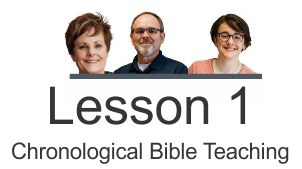
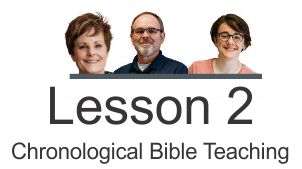
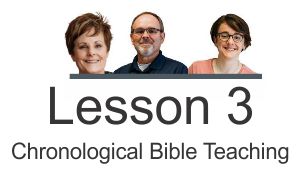
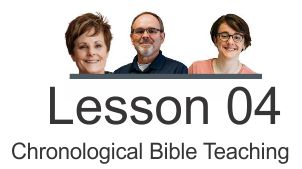
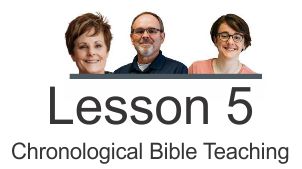
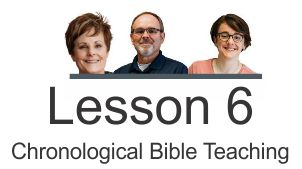
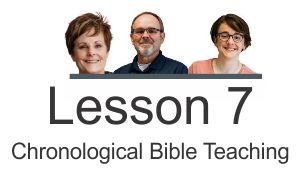
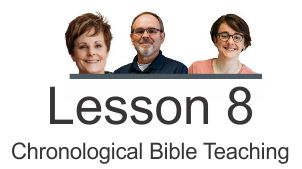
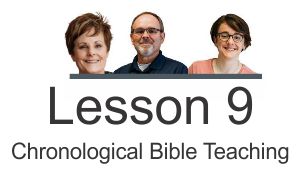
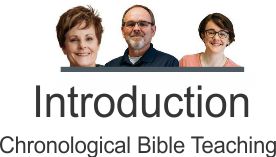
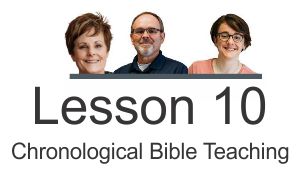
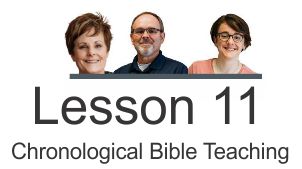
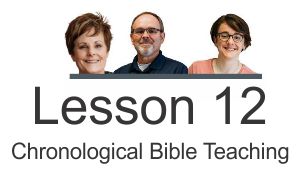
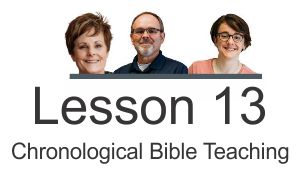
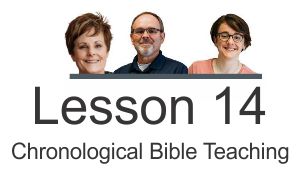
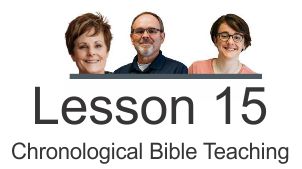
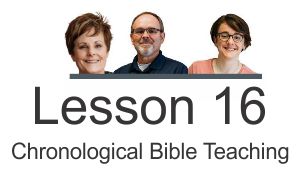
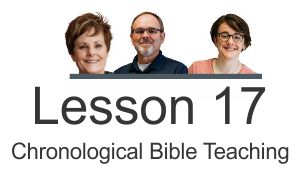
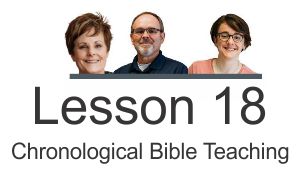
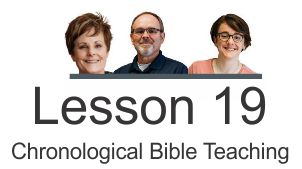
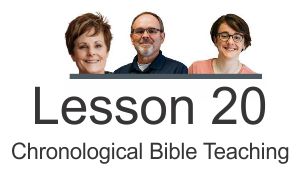
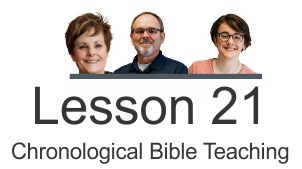
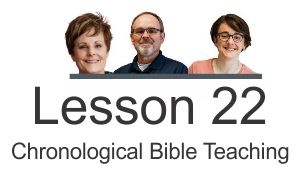
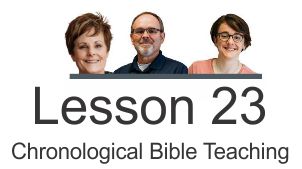
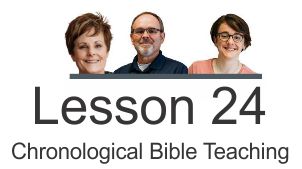
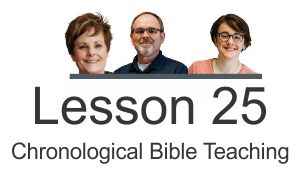
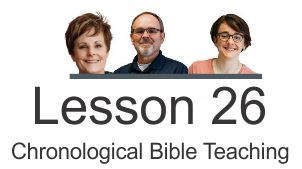
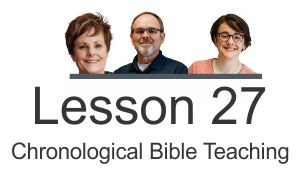
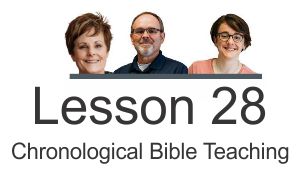
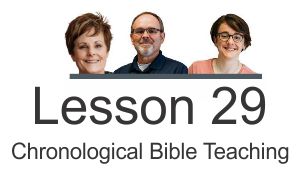
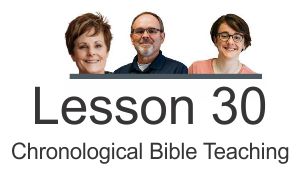
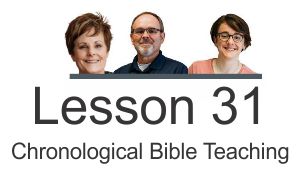
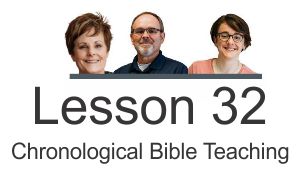
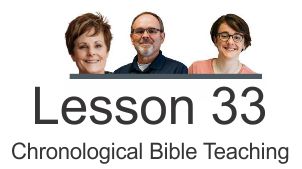
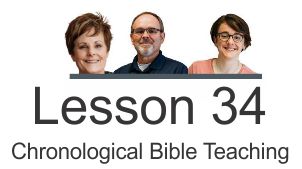
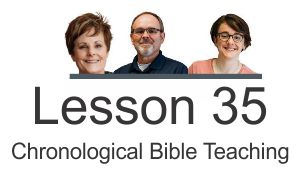
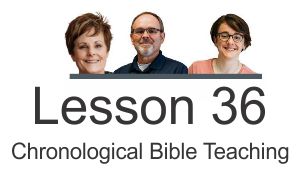
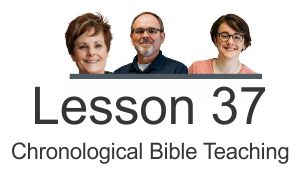
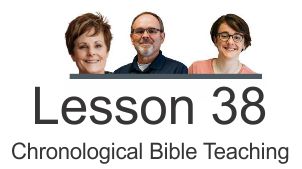
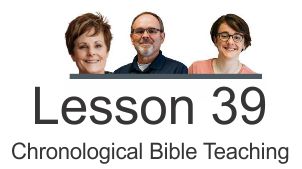
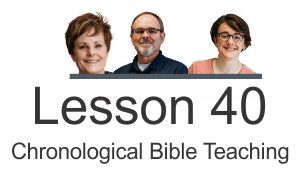
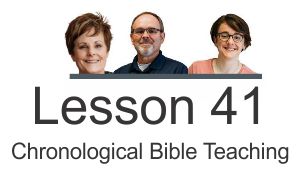
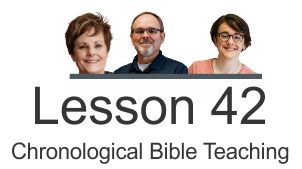
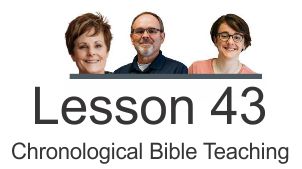
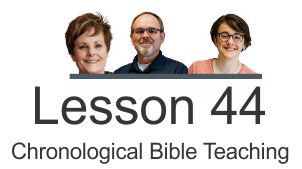
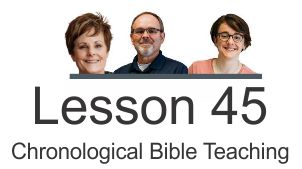
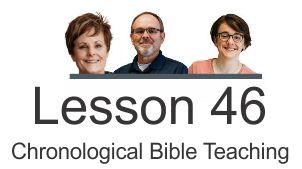
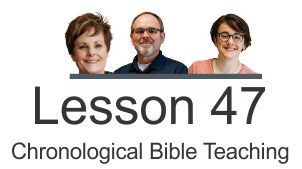
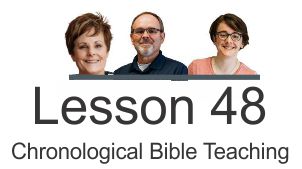
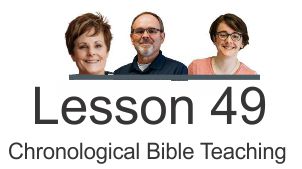
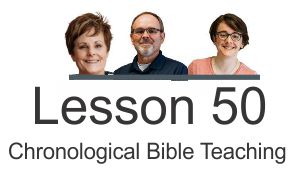
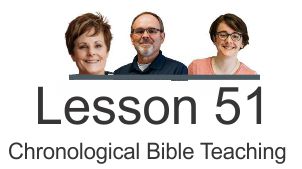
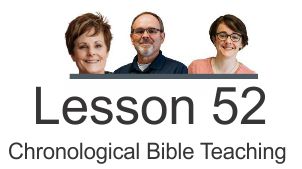
Page Discussion
Membership is required to comment. Membership is free of charge and available to everyone over the age of 16. Just click SignUp, or make a comment below. You will need a user name and a password. The system will automatically send a code to your email address. It should arrive in a few minutes. Enter the code, and you are finished.
Members who post adverts or use inappropriate language or make disrespectful comments will have their membership removed and be barred from the site. By becoming a member you agree to our Terms of Use and our Privacy, Cookies & Ad Policies. Remember that we will never, under any circumstances, sell or give your email address or private information to anyone unless required by law. Please keep your comments on topic. Thanks!